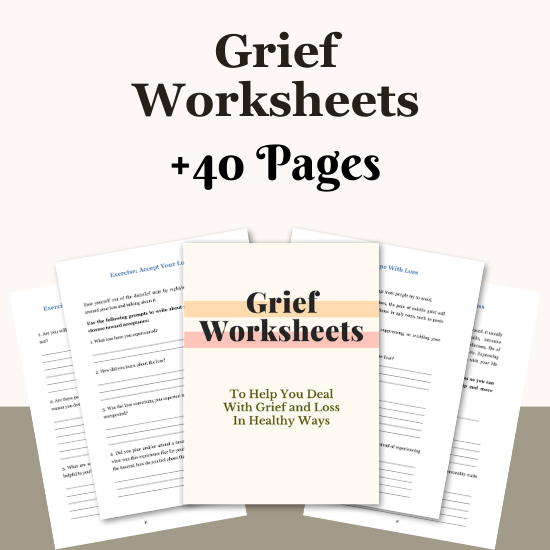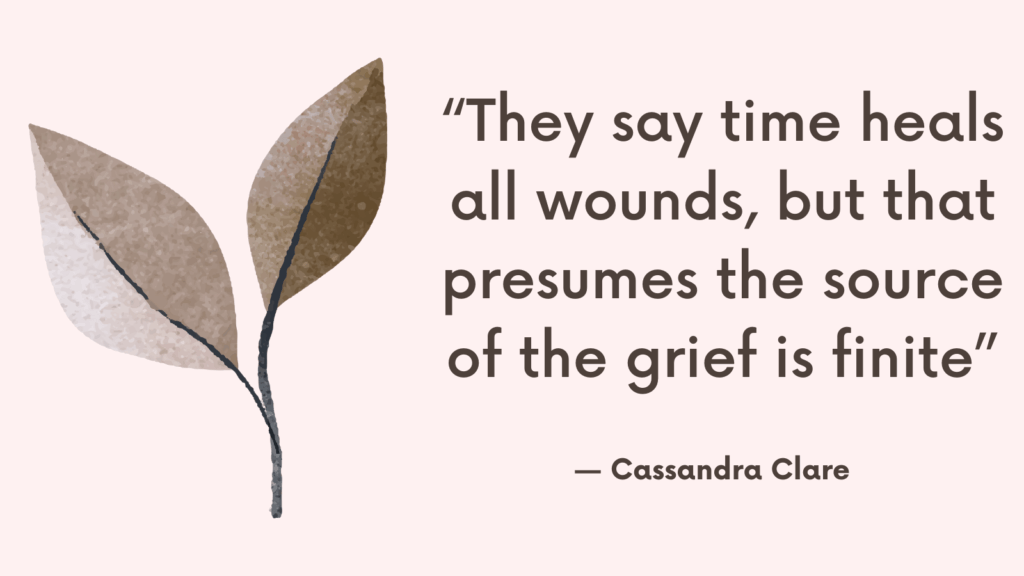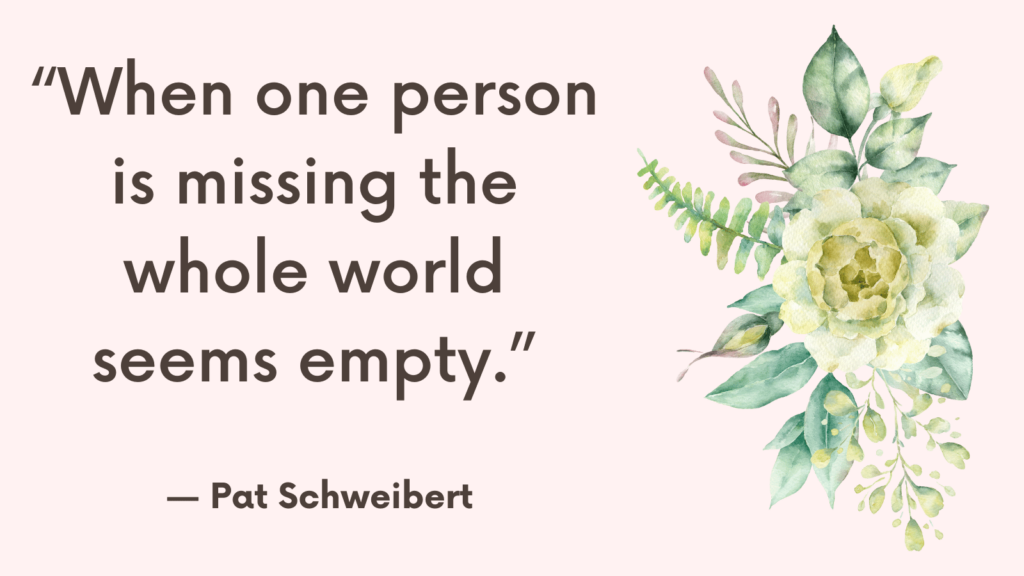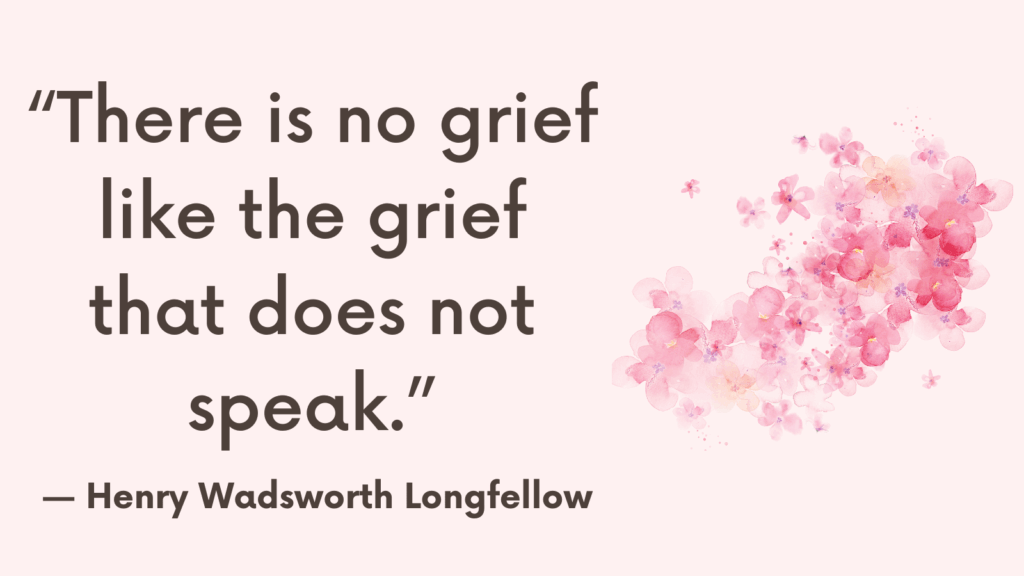When you’re the “strong one,” grief becomes even more complex. You’re expected to hold others together, manage emotions, and keep functioning—but inside, you’re breaking. Being strong doesn’t mean being silent. You have the right to fall apart, be held, and move through your grief at your own pace.
Signs You’re Bottling It Up
1. You stay busy to avoid feeling – You throw yourself into helping others or managing tasks so you don’t have to face your own grief.
2. You rarely talk about your loss – You focus on supporting everyone else and avoid sharing your own pain or memories.
3. You feel emotionally numb – You’re functioning, but disconnected — as if you’ve shut down to keep going.
4. You only cry in private (if at all) – You feel like you have to stay composed, so you suppress tears or grief around others.
5. You snap over small things – Unprocessed emotions leak out through irritability, anger, or frustration.
6. You feel alone even when surrounded – Despite being around people, you feel unseen in your grief because no one checks in on you.
7. You resist asking for help – You’re used to being the one who gives support, so reaching out feels unfamiliar or wrong.
8. You tell yourself to “stay strong” instead of “feel this” – You pressure yourself to be okay, rather than giving yourself permission to mourn.
Related: Best 21 Grief Journaling Prompts (+FREE Grief Worksheets PDF)
How to Grieve When You’re the “Strong One” for Everyone Else?
1. Acknowledge That Strength Doesn’t Mean Suppression
Strength isn’t about hiding pain—it’s about honoring it. You can be strong and sad, reliable and wrecked, composed and crying. Let yourself hold both.
2. Give Yourself Permission to Not Be Okay
Say: “I don’t have to hold everyone up today.”
Even if others rely on you, your pain matters too. You deserve space to grieve fully—not just in stolen moments.
3. Create Private Grieving Space
Find a safe time and place where you can break down without filtering your emotions. Journal, cry, scream into a pillow—whatever lets the pressure release without performance.
4. Let Someone Hold You for a Change
Identify even one person you trust enough to be soft with. Say: “I’m usually the strong one, but I need support right now.”
This builds reciprocal strength—not weakness.
Related: Grieving and Numb? These Worksheets Can Help You Sit with Loss and Heal
5. Set Boundaries With Compassion
You don’t have to emotionally rescue everyone while you’re grieving. Say:
“I want to support you, but I also need time to feel what I’m going through too.”
This honors your humanity and limits.
6. Accept That You May Grieve Differently
You may grieve through silence, structure, distraction, or delayed emotion. That doesn’t make your grief less real. It means your system is trying to survive in the only way it knows how.
7. Avoid Using “Strength” to Bypass Emotion
Don’t let functionality or caregiving become a shield. Even if you’re showing up on the outside, check in with your heart:
“Have I let myself feel what I need to feel today?”
8. Take Off the Role When You Can
You’re not a job title. You’re not a role. You’re a person. Even five minutes without being “the strong one” can bring relief. Let yourself just be.
9. Practice Micro-Mourning
If time or space is limited, grieve in micro-moments. Close your eyes and breathe. Whisper their name. Look at a photo. Light a candle. Small rituals make space for sacred pain.
10. Seek Support Beyond Your Circle
A therapist, grief counselor, or support group can hold space without expectations. You deserve to be someone’s “person,” too.
Related: Grief Comes In Waves: Top 12 Lessons From Grief No One Talks About

Conclusion
Grieving as the “strong one” doesn’t mean hiding—it means learning to carry your own heart with as much care as you carry everyone else’s. You’re allowed to fall. You’re allowed to feel. You’re allowed to be held.



